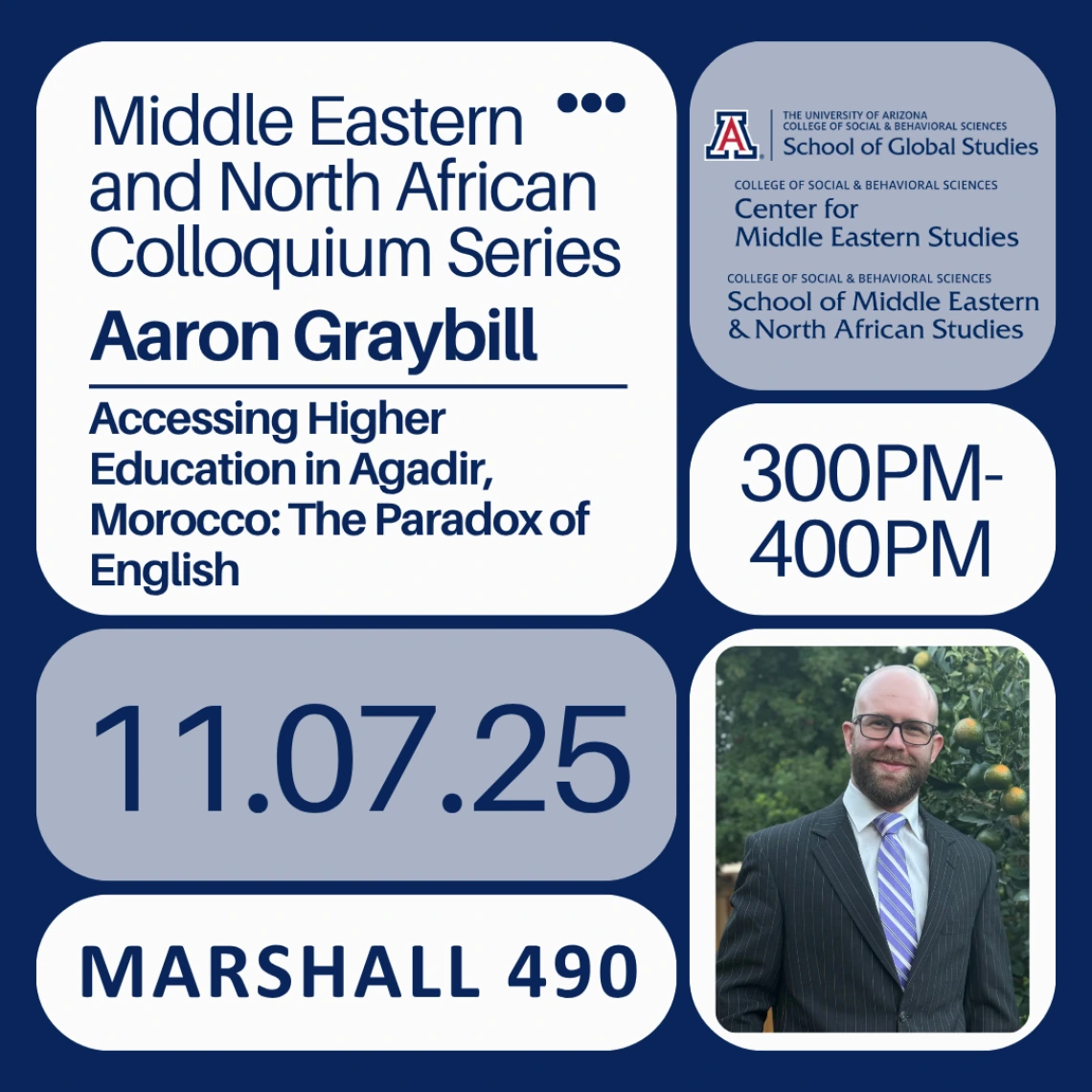Accessing Higher Education in Agadir, Morocco: The Paradox of English

When
Where
Accessing Higher Education in Agadir, Morocco: The Paradox of English
Bio: Aaron Graybill is a Ph.D. Candidate in Middle Eastern and North African Studies and a former Fulbright-Hays Doctoral Research Fellow. His previous academic training is in applied linguistics and anthropology, where he examined the impact of policy decisions on the status and vitality of Indigenous languages in Morocco and Algeria. His undergraduate study abroad in Rabat, along with subsequent stays in Fes and Agadir, allowed him to observe snapshots of the sociolinguistic and policy changes in Morocco over the last decade. His current research, which sits at the intersection of language policy, ideology, and the anthropology of education, focuses on student agency in navigating the Moroccan higher education system.
Abstract: Amazigh and Arabic are the official languages of Morocco. However, neither feature prominently in some prestigious university degree programs, many of which are still taught in French despite a decades-long Arabization process. In this environment, English has made unexpected inroads, affording students an additional option. In this talk, Mr. Graybill discusses this seemingly paradoxical option and how it affords students increased educational access, agency, and global mobility. Mr. Graybill accomplishes this through an analysis of open-ended interviews and participant observation gathered during ten months of field work in Agadir, Morocco. This research reveals the various motivations and rationales for choosing a program with English as the medium of instruction. Of particular interest are the interviewees who completed a high school scientific educational track and then switched to an English language degree program at university.
This will be a hybrid event. If you'd like to attend virtually please register for the Zoom.
https://arizona.zoom.us/meeting/register/0F1vOp46RU2wKpP9LoTO_w

